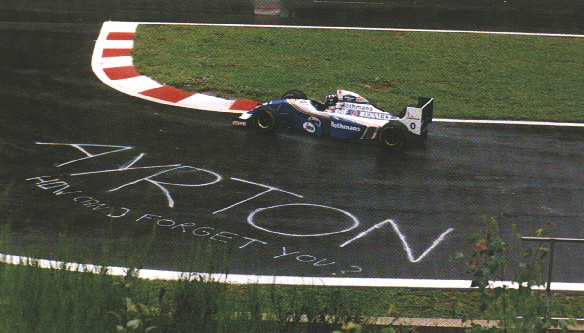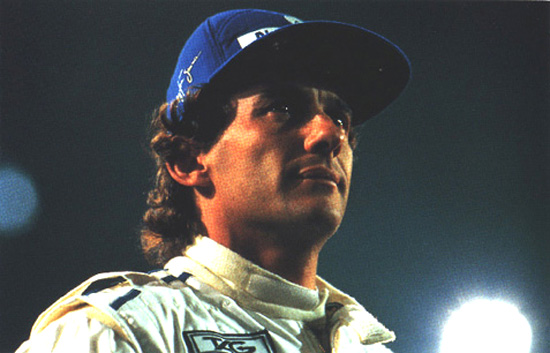
INNUENDO
|
While
the waves crash in the sea and meet the land While
there’s a wind and the stars and the rainbow Till
the mountain crumble into a plain Yes,
we’ll keep on trying, tread that fine line Yes,
we’ll keep on trying, just passing our time While
we live according to race, colour or creed While
we rule by blind madness and pure greed Our
lives dictated by tradition, superstition, false religion Through
the eons, and on and on Yes,
we’ll keep on trying Tread
that fine line We’ll
keep on trying Till
the end of time Till
the end of time Through
the sorrow, all through our splendour Don’t
take offence at my innuendo You
can be anything you want to be Just
turn yourself into anything you thing that you could ever be Be
free with your tempo, be free, be free Surrender
your ego, Be
free, be free To
yourself If
there’s a God or any kind of justice under the sky If
there’s a point, if there’s a reason To
live or die If
there’s an answer to the questions we feel bound to ask Show
yourself – destroy our fears – release your mask Yes,
we’ll keep on trying Tread
that fine line We’ll
keep on smiling And
whatever will be – will be We’ll
just keep on trying We’ll
just keep on trying Till
the end of time Till
the end of time Till the end of time |
Lyrics by: Queen
WHY
AYRTON?

"Ayrton, how can I forget you?" - a message in Spa from an unknown admirer
Many
people have tried to answer this question. Hundreds and hundreds of pages have
been written about Ayrton’s death, lots of intellects have tried to figure out
why him, why did he of all people had to get brutally killed before eyes of
millions? Because he oughtn’t to
have died. From the sport aspect he was a top professional, from the world
aspect he was a millionaire, from the business aspect a highly successful
businessman, from the human aspect a benefactor - the only hope for thousands of
people with no hope, and beside all this, he was a living symbol of positive,
encouraging characteristics in the sea of hopelessness and rigorous reality. And
still he died. Why?
People
are usually small and helpless when they face this question. They’ve reacted
differently. Cynics shrugged their shoulders and said: -Where is his God now?-.
The half-hearted and the weak lost that little faith they had. People from
"the concrete world" turned to others without giving much thought, the
superficial immediately forgot, but I have a presentiment that there are also
people who experienced Ayrton’s death in a different way and who can’t
forget him despite his death.
For days, months and now even years I have been fervently searching for answers to questions who was that man, what he means to me, what happened because how can an absolute stranger at the moment of his death become a part of my life to that extent that it’s impossible to separate or forget him? Because I am not a fan of F-1. I’ve never watched races with interest. For me that had been a rather incomprehensible and therefore boring sport which I watched accidentally. And I didn’t know absolutely anything about Ayrton except of his name, not even his appearance. Nothing had tied me to him and also his death wasn’t the first which I witnessed on TV. I would always go away from the TV when the scene of somebody’s death was constantly repeated - it hurt me. I left this time, too, but in vain - Ayrton’s tragedy followed me. Some force was effective. I felt the horror and the pain of that terrible moment everywhere as if it was coming simultaneously from outside, from the space and from my own heart. It was an extremely confusing moment, I was feeling that an invaluable loss was occurring and my whole being wanted to stop it. The helplessness of not being able to do this hurt to death. I wasn’t able to say a word, but at the same time something in me wanted to scream. Lines from one poem might to some extent describe that extremely irrational moment. "Numb and full of cry is his dying", this is how the poet talks about that moment in time, in which something inexplicably tied me so firmly to Ayrton (whose appearance I didn’t even know then. I saw him only afterwards, in the news: they were showing Ayrton, in slow motion, while putting on his helmet). And the strangest thing is that this bond has never ceased to exist. It’s not confusing any more, as it had been on that sunny afternoon long time ago, but it has become something everlasting, valuable, something that is impossible to be unfaithful to. Ayrton Senna has become an inseparable part of my soul, a link in my life.

Paris Bercy 1993
When
after his death, I searched in all available sources for information about him,
I came across these words, which he said when he was laughed at behind his back,
because he talked openly about the spiritual experience he had:
"I know in
advance that there will be people who will make fun of it - that’s why they’re
here. But for me they’re are a minority and not worth thinking about. But the
others who listen properly are more important. Perhaps what I say can be a link
in a chain for them, in their emotions, in their lives."
It
is truly incredible how these words turned out to be true. Ayrton is literally a
link in my life, a powerful symbol on the way towards my own individuation. I
have read lots of books from which I tried to comprehend the way these phenomena
function, because they are only existing if they have real consequences.[1]
In my search, I came across C. G. Jung’s body of work. This great reasoner and
even greater expert on the way human psyche works gave me lots of answers. But
here it is impossible to get into deeper analyses, it could be done only by an
expert. I’ll still quote one of Jung’s definitions which might at least a
little illuminate Ayrton’s path in his search for "the place where the
gods dwell." Jung says: "This
way towards ultimate religious experience is correct, but how many of us succeed
to recognize it? This is a silent voice from a distance. It’s ambiguous, full
of doubt and dark, it signifies danger and courage. It is a precarious pathway
upon which you can walk only with God’s will, without security and
confirmation."
When
we look at Ayrton’s life path, we can clearly see how hard and enduringly, but
loyally, he walked upon it setting us an example - that was his mission - to
give an example to those who listen properly. Now, when he’s gone, those who
understand must go on alone, on their own. Everyone in their own background,
according to their abilities, because in our everyday lives we can find all
those elements we could follow in his. We are all forced to fight with the
difficulties that life brings, face with various authorities and injustices,
with physical and psychical pain. We must live and try to give our best in that
life. This is the only correct way of living because there has to be a correct
way of living and at the same time, the only way to stay loyal to Ayrton’s
memory.
"The only
way to improve yourself is to live, to live day by day and thereby to learn
about living",
Ayrton advised us.

Once
I had a dream in which all this was very symbolically shown. I dreamt I was on a
very big field with freshly ploughed up soil. The furrows were long and
stretched interminably, I was walking along them and sowing some kind of seed. I
found my job very difficult, since the field was enormous, you couldn’t see
the end of it, which is why I was grumbling to myself: Who will sow all this
with seed? And I got the answer to my question: Senna ploughed this field up and
now is your turn to sow it.
I
quite often dream about Ayrton and those dreams are always answers to my
dilemmas. It almost seems as if this is my way of communicating with him.
Dostoevsky wrote, in one of his books, these words for one of his dying
character: "Only few people stay in human memory, but it doesn’t matter,
even if you forget, I will love you from my grave, too. Live and rejoice; I
shall come to you in your dreams... It is all the same, even after death love
continues to live... "
[1]
Only ten years after Ayrton Senna’s death the author came across P.L.
Landsberg’s book “Experience of Death” in which she found the answer
to what happened to her on